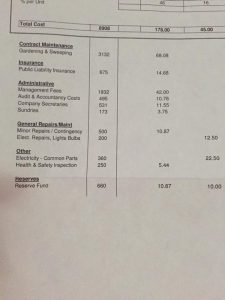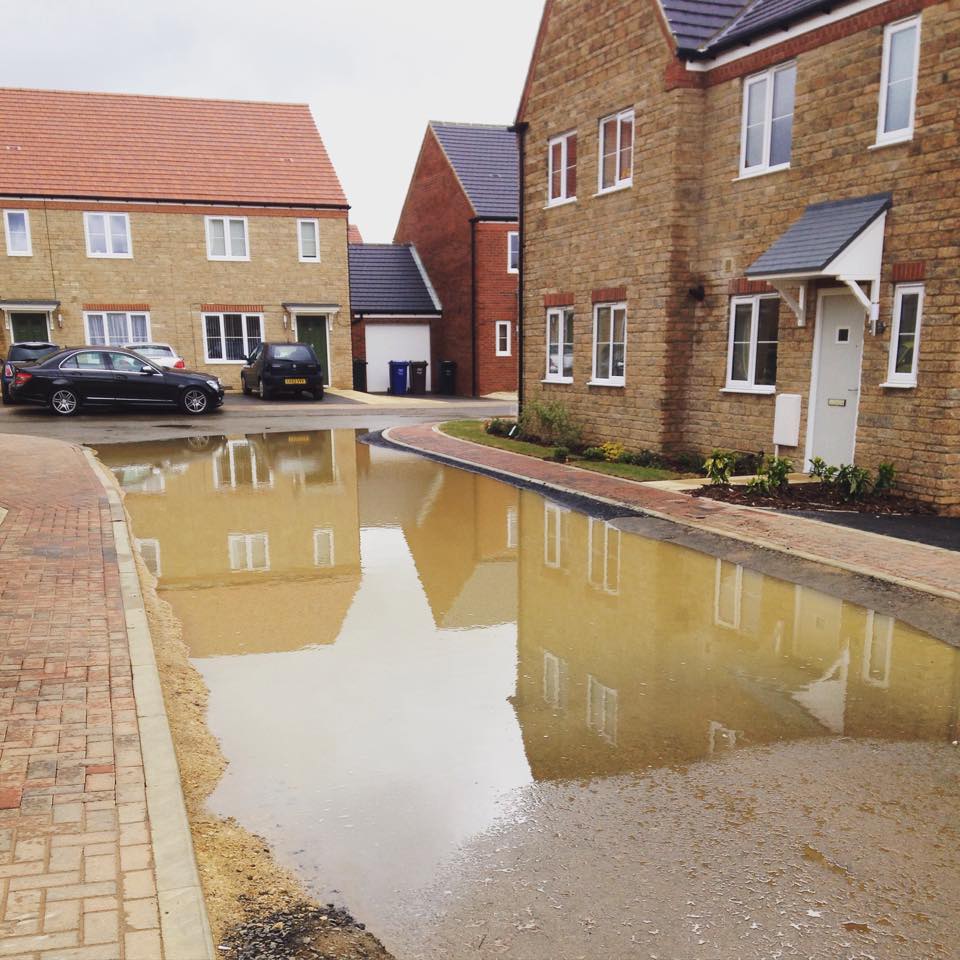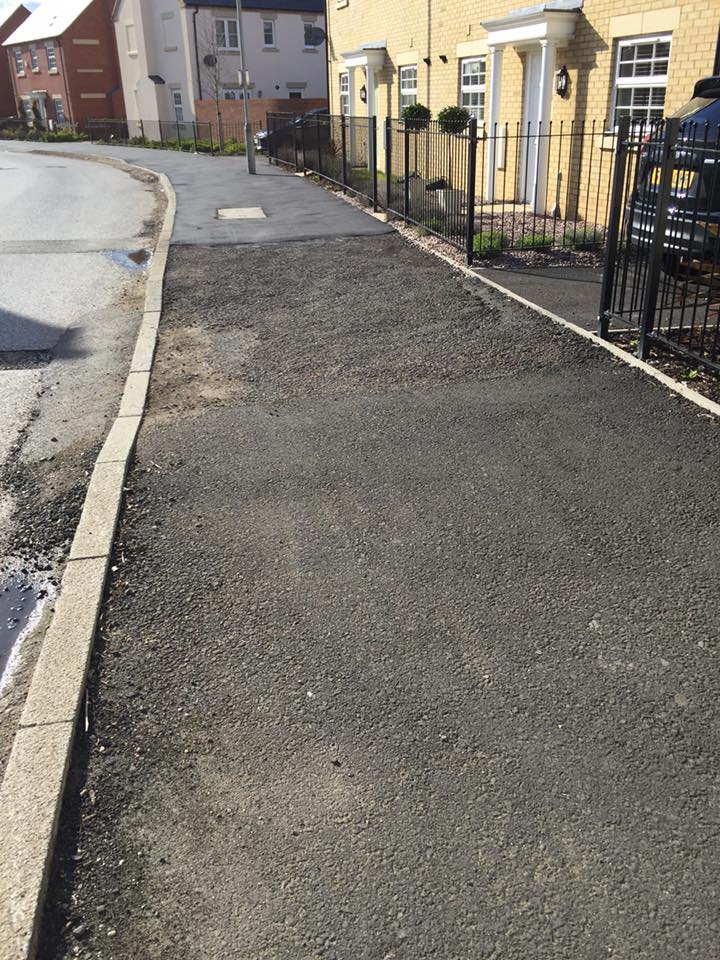“The council do not adopt new housing estates anymore”
Private roads (as defined by Sections 203 to 237 (Part XI) of the Highways Act 1980) are a highway not maintainable at public expense. The local highway authority is therefore under no obligation to pay for its maintenance. Responsibility for the cost of maintaining a private road rests with the frontages – the owners of properties with frontages on such roads.
It is now becoming increasingly common on new housing developments that roads and other public areas are not being taken over and adopted by Local Authorities. With the roads and landscaping areas remaining private ownership, all new-build homebuyers on these developments are legally responsible for their maintenance, repair and insurance, paid for via years of ongoing, potentially ever increasing, annual management charges.
Apart from the obvious and unavoidable extra cost to those buying on these developments, there are many other disadvantages for new homebuyers on developments where roads and public open spaces are not being adopted by the Local Authority.
Disadvantages include:
- Cost. New developments have an ongoing management charge that covers communal areas on a the development which include unadopted roads, street lighting, signage, third party insurance, children’s play areas and landscaping. The ongoing annual charges will mean lower selling prices and will probably put off many buyers when it is time to sell.
- Maintenance costs for shared driveways may not be included in the overall management charges.
- The duty to maintain un-adopted estate roads and any sewer drainage under them, falls to all the owners of property on the development or depending on how and when it was set up, those fronting that part of the road. This can cause problems when residents of a private street disagree on the cost, timing and expense of maintenance.
- Homeowners could get stung for the costs of clearing up contaminated land if the home was built on a brownfield site and potentially, getting rid of Japanese Knotweed on communal areas.
- If repairs are not made, private roads can fall into serious disrepair, causing other problems such as flooding.
- Owners of properties on non adopted estates will still be required to pay full council tax.
- Local authorities have discretionary powers to improve the standard of any privately-owned street at any time and to contribute to the cost, but most would choose not to exercise these powers.
- The Local Authority will probably not: grit the roads in icy conditions or clear heavy snowfall; carry out road sweeping or drain gully clearance.
- Refuse collections may not even enter the private road. The road may be too narrow for the refuse wagon. Residents would then be required to wheel their bins to the nearest adopted main road.
Any advantages would depend on the area and the particular development. It might be argued, that there may be less traffic, better security and greater control over the surroundings and better community spirit.
So why have the house builders started doing this?
I asked both Barratt and Persimmon why they are increasingly using the private management option in apparent preference to local Authority adoption under a Section 38 Agreement for estate roads on their developments? Neither has replied and no replies are anticipated!
So what could be the reason for roads not being adopted?
I considered whether Local Authorities had chosen to refuse at the planning stage, to adopt estate roads under a section 38 agreement, presumably to avoid future maintenance costs to the council taxpayer. But it would appear that some developments, even with the same builder, have Section 38 Agreements in place on one site and another two miles away is to have privately-owned estate roads. So the decision is being made solely by the house builders. More likely it is another ruse to fleece even more money from new homebuyers. The sums involved, typically £200 to £350 a year per home, are relatively trivial compared to house builders’ main business operations. However, the sale of these freeholds can bring in extra revenue and these are being sold as an income generating, asset class.
Keeping roads private has other advantages for housebuilders. It can often take time before work can start on site, to get all the legalities of the Section 38 Agreement signed-off and fees paid. Without this, work to construct adoptable site roads cannot be commenced, delaying virtually all other the work on site.
Every Section 38 Agreement also requires the house builder to provide a Bond. This is a sum of money, held in the form of a Bond, often provided by the NHBC, to pay for any works required should the builder fail in his obligations to build the roads to the Local Authority specifications and standards. House builders are often slow to complete the adoptable areas, arrange inspections and complete remedial works. This results in bonds being held for longer. When builders reach their bond limit, no new bonds are available and the only option is privately roads.
The use of non-adopted roads often results in narrower roads, narrower pavements, smaller parking spaces and reduced, low specification street lighting, making it possible to cram in even more new homes. Private roads can also be constructed to a lower specification which could substantially reduce construction costs. It will matter nothing if the road collapses after a few years as buyers will be paying for the repairs!
One of the most important questions to ask the sales advisor at the outset is whether the roads will be adopted by the local authority under a Section 38 Agreement on completion of the development. If the answer is no, then buyers should walk away. Private roads and ongoing management charges are something that new homebuyers can well do without and avoid can altogether.
 Private roads and landscaping charges are a common complaint I see. Many buyers tell me that they were never informed that the development roads were not going to be adopted by the Local Authority. Some buyers are never shown the management costs at the time of reservation by sales or later by their solicitor, especially when buyers have been persuaded or incentivised to use the house builder’s suggested choice of solicitor.
Private roads and landscaping charges are a common complaint I see. Many buyers tell me that they were never informed that the development roads were not going to be adopted by the Local Authority. Some buyers are never shown the management costs at the time of reservation by sales or later by their solicitor, especially when buyers have been persuaded or incentivised to use the house builder’s suggested choice of solicitor.
Some residents are so fed up with management charges for private roads they have no control over, have set up an action group Homeowners Rights Network
Buyers should also be aware of housebuilders adding a clause like this:
“17. Not to make support or procure any application to secure the adoption of the Estate Roads as publicly maintained highways pursuant to Section 228 of the Highways Act 1980 or any statutory re-enactment thereof or any other similar statutory provisions and if required by the Landlord to object to any such application.”
This means that homeowners are not allowed to seek the adoption of the road and if the council attempts to, the freehold owner of the estate roads can demand that you object, thus protecting their ownership and future income.








